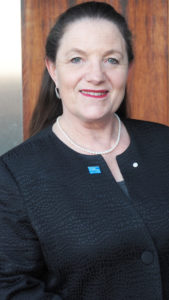CANBERRANS are some of the best reporters to Crime Stoppers nationally and, recently, police have been busy with more than 600 calls about COVID-19 breaches, which raises the question: “What is it that makes people dob someone in?”

A behavioural science lecturer at the University of Canberra, assistant professor Dr John Hawkins, says it essentially comes down to people feeling like they’ve been treated unfairly.
“Behavioural science experiments have shown that people resent unfairness and are willing to incur costs to punish those they regard as behaving unfairly,” Dr Hawkins says.
“So a family that has been staying at home on their own, ‘playing by the rules’, who sees a neighbour holding a party may well be motivated to dob them in.”
Since the COVID-19 restrictions were implemented, ACT police say they’ve received more than 600 reports of virus-related incidents. And, more recently, in early April, police attended 164 call-outs for reported virus breaches.
“If the people next door aren’t playing by the rules of the game, they probably will dob them in, even at risk of the neighbour finding out,” Dr Hawkins says.
“Even though Australians are supposed to be opposed to authority and rebellion, being treated unfairly outweighs that.
“Australians like to think of themselves as larrikins and rebels, but in practice they tend to follow rules more than you might think.”
There seems to be a strong social norm about following the physical-distancing rules, says Dr Hawkins, which is something he was surprised about.
“I was a little surprised at how meekly people have accepted the restrictions. The restrictions are seemingly like a nanny state and yet people play along with it,” he says.
“People have accepted them even if they’re not at great risk, they see it as a way of stopping the spread of the disease. Also, once they see most people obeying the rules, there’s a strong pressure for them to also obey.
“It’s the idea that people want to conform and if they think everyone else is obeying the rules, they want to obey them, too.”
And, when it comes to Canberrans doing the right thing, it’s not only in regards to COVID-19.

According to Crime Stoppers, there was a 75 per cent increase in calls to Crime Stoppers in the ACT in 2019, compared to 2017.
In the same year, Crime Stoppers ACT received 14,266 contacts from the public, whether via a phone call or online, which resulted in 3052 information reports, 32 arrests and 193 charges. This was 2030 more calls than 2018.
Diana Forrester, the chair of Crime Stoppers Australia and the ACT, says she likes to think that Canberrans report because there’s a chance the criminal will be apprehended and it’s helping everyone be safe and secure.
“Canberrans are really terrific about caring about their community,” she says.
And, she says, they do it because they care.
“By looking at our total population and the number of people in Canberra who call Crime Stoppers, the ACT is really right up there in terms of per capita reporting,” she says.
More people in Canberra are also willing to leave their contact details and are less likely to report for a reward, Diana says.
“Mostly Canberrans are disinterested in the connection between giving information and receiving a reward compared to other states and territories,” she says.
“They’re doing it because they care.”
Nationally, Diana says someone contacted Crime Stoppers every two minutes to share information about unsolved crimes and suspicious activity, leading to an average of 100 apprehensions by police every week.
“We ask the public to report every single piece of information that they think is suspicious or a criminal act,” she says.
If it’s a crime-in-progress that needs police assistance, Diana says people should call 131444, but if no one is in danger, she says it can be more helpful to get all the details and provide them to police through Crime Stoppers.
For example, she says if someone was suspiciously taking a television out of a house, it would be more helpful to take down details.
“What make and model of the car they got into, were they tall, short, what colour was their hair?” she says.
“If they’re not in danger and there’s no way the police will get there in time, with that information, chances are the person will be caught in the end.
“It’s the smallest pieces of information that help, and without the eyes and ears of the community, we really can’t keep the community safe.”
Who can be trusted?
In a world of spin and confusion, there’s never been a more important time to support independent journalism in Canberra.
If you trust our work online and want to enforce the power of independent voices, I invite you to make a small contribution.
Every dollar of support is invested back into our journalism to help keep citynews.com.au strong and free.
Thank you,
Ian Meikle, editor





Leave a Reply